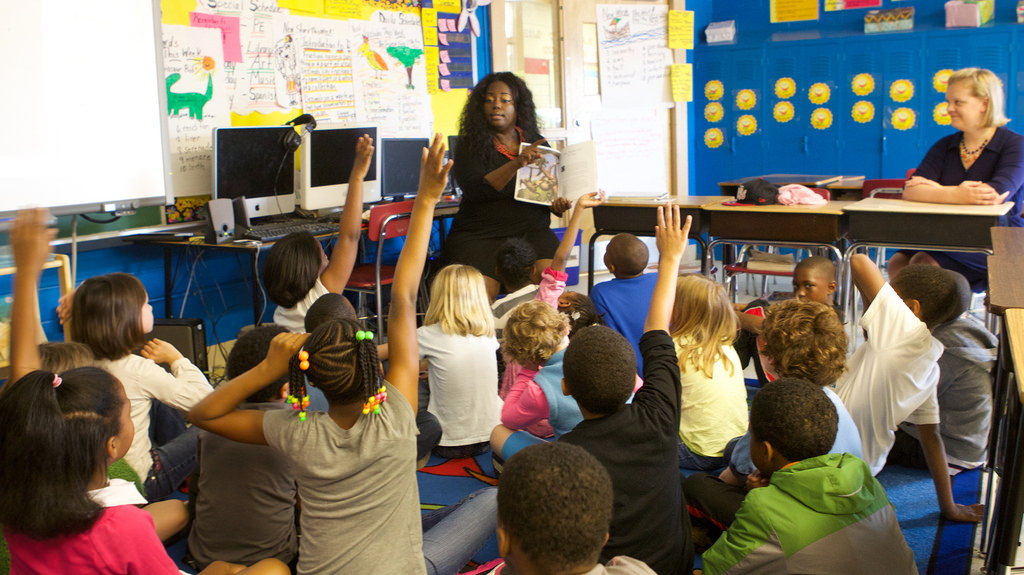
Two moments stand out as groundbreaking in laying a foundation for access to equal public education for all students: the 14th Amendment to the Constitution (1868) and Brown v. Board of Education of Topeka (1954). However, even with these two significant public education breakthroughs, schools today continue to be funded in a way that prevents those in low-income neighborhoods from accessing equal services as those in high-income neighborhoods. On average nationally, about 10% of a school’s budget comes from the federal government, 45% from the state, and a whopping 45% from the local government. Locally, taxes are made mostly from property taxes, so schools in areas where property taxes are lower receive less funding per student than schools in areas where residents pay higher property taxes. Funding for public education is inherently unequal, and yet we wonder why schools in poorer neighborhoods are crumbling and closing every day.
Throughout my time in Jewish social justice and social action spaces, one anecdote has been repeated time and time again. A few people from a village discover a baby floating in a river. Shocked by what they see, they pull the baby out of the river. Upon doing this they see three more babies in the river. They pull those babies out of the river, only to discover even more babies in the river, so many that they cannot save every one of them. They go back to their village and plead with others to help them. However, one villager proposes to send a group upstream to figure out how the babies are getting into the river in the first place. The village cannot decide which plan to accept. Both have merit and both are important — if there are only people upstream trying to fix the problem, all of the babies will float past the village and won’t be saved; but if all of the villagers watch the river attempting to save the babies constantly and indefinitely, that too is unsustainable.
The system is where the problem lies — upstream. The challenge is attempting to reform all of the moving parts that are fundamentally and structurally broken while also not neglecting the 50.4 million students currently in public schools — downstream. Right now, the most important actions we can take are to become educated on issues plaguing the public education system and call our representatives to oppose the lack of funding for education in the President’s budget proposal.
The proposal includes cuts to Title I (a critical supporter of schools in low-income neighborhoods), a training and class size reduction program, an after-school program serving mostly low-income students, and a literacy program. In addition, the government would allocate $250 million for school vouchers and $167 million for charter schools, money that will not go toward improving existing public schools. In Jewish tradition, tikkun olam (repairing the world) is a fundamental value. We are taught in Leviticus “do not stand idly by while your neighbor’s blood is shed.” When we and our neighbors suffer from inequalities in the education system, we must call our representatives in Congress to oppose the President’s cuts to the education budget.
Carly Klinenberg is a rising junior at Washington University in St. Louis with a double major in Political Science and Educational Studies. This summer, Carly interned at Jewish Women International (JWI).
Related Posts

Favorite Jewish Teachings from Leaders of Color

What Jewish Wisdom Can Teach Us about Waiting for Election Results

